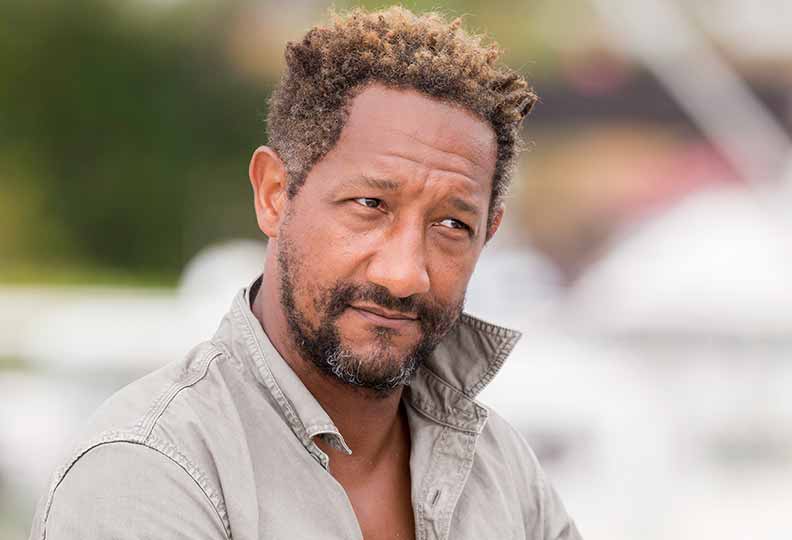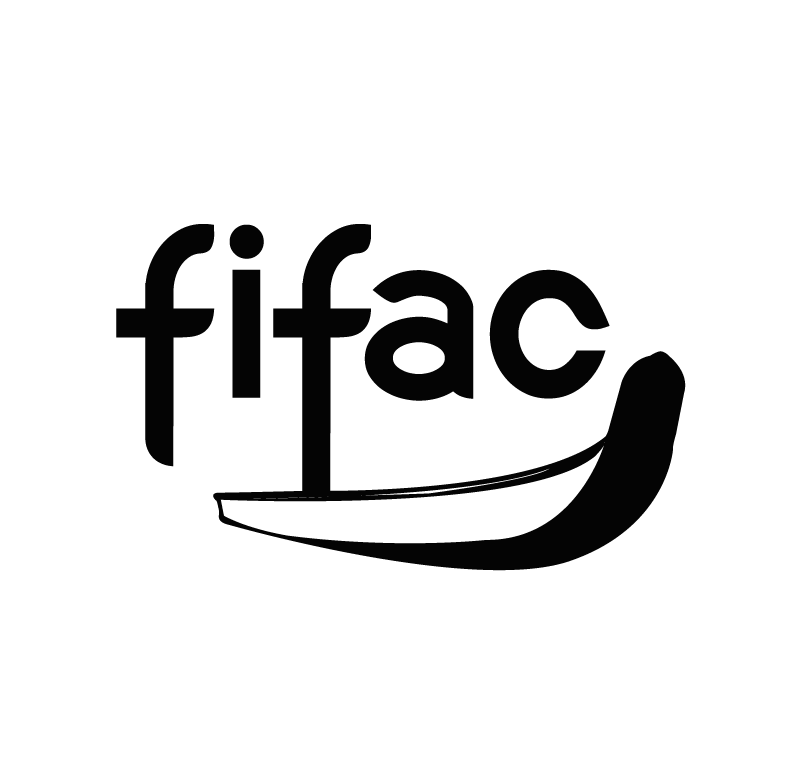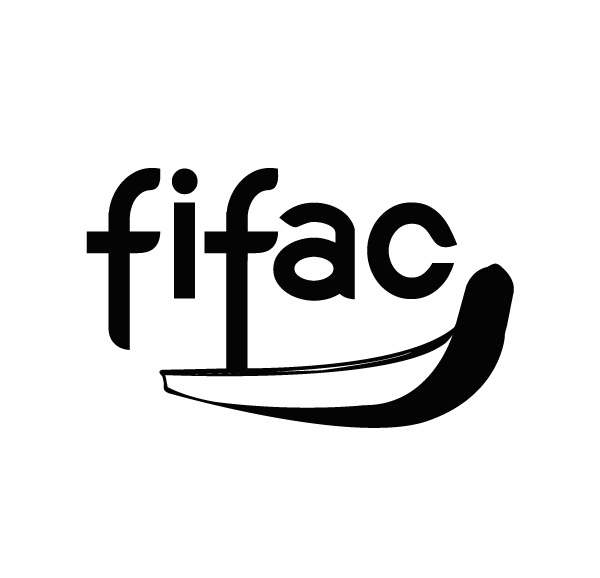
EDOUARD MONTOUTE (président du jury) : « Nos régions ont des choses à dire, un regard et une voix à porter. »

Vous nous faites l’honneur et le plaisir d’accepter la présidence du jury de la 4ème édition du FIFAC.
Bien connu des Guyanais et du public hexagonal pour vos différents rôles au cinéma, le FIFAC ne vous est pas inconnu : votre premier court métrage, Ma dame au Camélia, a été présenté dès la première édition du FIFAC en 2019.
• Pouvez-vous nous partager les raisons qui vous ont décidé à accepter notre invitation ?
L’envie irrépressible d’un bouillon d’awara !!!!! Mais pas que.
C’est un métier de rencontres et les festivals sont des occasions de croiser des professionnels et des artistes de milieux et d’univers différents. De plus je saute sur toutes les occasions qui me sont offertes de revenir en Guyane, ma terre natale. Et enfin le milieu du documentaire m’intéresse de plus en plus mais reste inconnu pour moi, cette invitation est une belle opportunité.
• Comment envisagez-vous votre rôle de président du jury ?
J’ai déjà endossé le rôle de président de jury dans d’autres festivals et je ne le conçois pas différemment de celui d’un autre membre du jury. Il est question de faire preuve de curiosité, d’enthousiasme, de disponibilité et d’ouverture d’esprit. Et je compte beaucoup sur l’éclairage d’Arlette Pacquit, Jorane Castro, Marvin Yamb tous trois réalisatrices et réalisateurs émérites et d’Emmanuel Migeot, de Cyrille Perez et leur expérience dans le documentaire.
• Pour vous, quel est l’intérêt du FIFAC (Festival International du Film documentaire Amazonie-Caraïbes) en Guyane et dans la Grande Région?
Je pourrais répondre que je m’apprête à le découvrir, mais j’imagine que l’enjeu de ce genre d’évènement est d’honorer des œuvres artistiques en les faisant découvrir du grand public.
Mais à l’heure où les plateformes se développent et la consommation d’images se fait à l’échelle mondiale, la France a une carte à jouer, et il est capital que l’Outre-mer puisse tirer son épingle du jeu. Le FIFAC a toute la capacité pour faire rayonner sur le bassin sud-américain et Caraïbe, c’est un atout majeur à développer davantage.
Nous sommes très proches de nos voisins, culturellement et d’histoire commune ; c’est un marché potentiel : soyons des exportateurs de nos images, nos histoires, nos cultures….
• Qu’attendez-vous d’un film documentaire ?
Selon moi, le documentaire a cet avantage sur la fiction qu’il traite de sujets souvent liés à la réalité, de personnes existantes, de vraies problématiques de vie et qu’il a plus vocation à évoquer, informer et sensibiliser que divertir.
Il permet un regard neuf, différent et attentionné sur des aspects de la vie publique qu’on ne soupçonne pas ou qui ne sont souvent traités ni par la presse ni par le cinéma.
• Aujourd’hui que peut-on dire de la production cinématographique en Guyane et aux Antilles françaises ? Comment percevez-vous ces productions, vous qui êtes né en Guyane ?
A mes débuts, rares étaient les comédiens et personnalités artistiques ultramarins jouissant d’une belle renommée : au cinéma Darling Légitimus et dans le spectacle Henri Salvador.
L’Outre-mer n’était pas ou peu représentée. Aujourd’hui je constate un vif intérêt et un engouement pour le 7ème art, pour la fiction télé mais aussi le documentaire ou même l’animation et nos régions y sont pro-actives. La série Bel Ti koté produite par Marc Barrat et entièrement fabriquée sur le territoire guyanais par des artistes et techniciens de Guyane en est la preuve.
L’émergence de réalisateurs comme Marvin Yamb, très engagé sur des problématiques sociétales, à l’instar de Marie-Sandrine Bacoul ou Christophe Yunawana Pierre et bien d’autres est très rassurante quant à cette envie émancipatrice de raconter leurs propres histoires et dévoiler leurs univers.
Nos régions ont des choses à dire, un regard et une voix à porter. Je suis aussi sensible au fait que le secteur s’enrichit du regard et du soutien de productrices telles que Murielle Thierrin, Véronique Chainon, Chloé Bebronne ; ce qui prouve une mixité qui m’est chère et dont nos films ont besoin.




